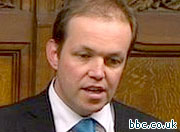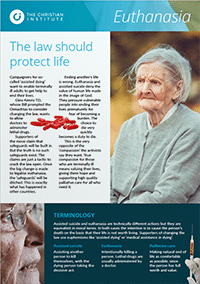MPs and commentators have raised concerns that yesterday’s 90-minute debate on legalising three and four-parent baby techniques was far too short for a decision of such importance.
After the debate, MPs voted 382 to 128 in favour of regulations allowing procedures aimed at creating children free from mitochondrial disease.
Referring to the important safety, legal and ethical issues surrounding the techniques, Tory MP David Burrowes said “surely we need longer than 90 minutes”.
Great significance
“This matter is of great significance to the country, because, for the first time in the world, we would be permitting human germ-line genetic modification”, he said.
“I would have thought these matters deserved fuller debate and scrutiny”, he argued.
And after the vote, Labour MP Rob Flello highlighted that some MPs “did not even have the chance to contribute”, whilst others had to “rush through their speeches”.
Magnitude
DUP MP Dr William McCrea said there was “general dismay” that only 90 minutes was allocated for a “decision of such magnitude”, when they had three hours scheduled for the next debate on rural phone and broadband connectivity.
The speaker for the House of Commons, John Bercow MP, said it was up to ministers to extend the time of debates.
Writing in The Spectator, Isabel Hardman commented: “That MPs have time to discuss something before making up their mind to vote seems particularly important on a free vote, and even more important given this is a subject that few in the Commons can claim a great deal of expertise on.”
Assumptions
She added: “It’s almost as though ministers would rather MPs voted based on their assumptions rather than at the end of a debate where their views might be challenged”.
The Prime Minister David Cameron voted in favour of the techniques, and has said previously: “We’re not playing god here, we’re just making sure that two parents who want a healthy baby can have one.”
Josephine Quintavalle, of the pro-life group Comment on Reproductive Ethics, said the vote was a “sad, sad day for both science and ethics”.
Despair
“It is hard not to feel despair that so many elected members of Parliament could agree to such a dangerous and unethical re-writing of human biology, no matter how virtuous the end objective of creating children without mitochondrial disease”, she added.
The House of Lords is now set to vote on the Human Fertilisation and Embryology (Mitochondrial Donation) Regulations 2015 which could come into force in October.


